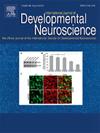Knowledge, Attitudes and Willingness of Caregivers of Preterm Infants Toward Autism: A Cross-Sectional Study
Abstract
Background
To examine the knowledge, attitudes and willingness of caregivers of preterm infants toward autism spectrum disorder (ASD).
Methods
This cross-sectional study was conducted from September to December 2022 at the Hospital and enrolled the caregivers of preterm infants. The final questionnaire, developed by the authors, included four dimensions: demographic data, knowledge (16 items), attitudes (10 items) and willingness (seven items).
Results
This study included 702 participants (77.21% females). The average knowledge, attitude and willingness scores were 7.75 ± 3.47 (total: 16), 38.54 ± 4.38 (total: 50) and 31.38 ± 3.95 (total: 35), respectively. Female (OR = 1.945, 95% CI: 1.182–2.797, p = 0.003), college or bachelor's (OR = 4.429, 95% CI: 1.525–9.788, p = 0.006), master or above (OR = 3.864, 95% CI: 1.194–12.500, p = 0.024) and stable work (OR = 2.098, 95% CI: 1.421–3.098, p < 0.001) were independently associated with sufficient knowledge. Age 30–34 (OR = 0.639, 95% CI: 0.423–0.695, p = 0.033), age ≥ 35 (OR = 0.517, 95% CI: 0.334–0.802, p = 0.003) and urban residency (OR = 1.697, 95% CI: 1.118–2.576, p = 0.013) were independently associated with favourable attitudes. The knowledge scores (OR = 1.100, 95% CI: 1.041–1.162, p = 0.001), attitude scores (OR = 1.212, 95% CI: 1.158–1.690, p < 0.001) and a monthly income of 10,000–20,000 RMB (OR = 2.125, 95% CI: 1.208–3.736, p = 0.009) were independently associated with the positive willingness.
Conclusions
This study observed poor knowledge but favourable attitudes and willingness toward ASD among caregivers of preterm infants. More attention should be paid to the education of caregivers to improve the knowledge of autism in the families of premature infants.


 求助内容:
求助内容: 应助结果提醒方式:
应助结果提醒方式:


